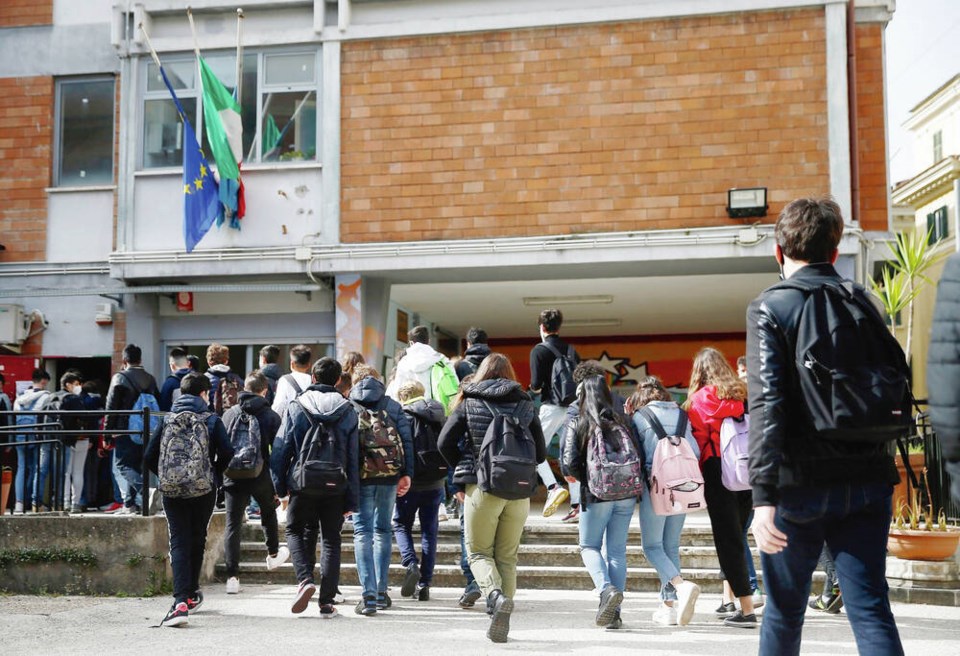The debate about how best to educate “gifted” children has never been satisfactorily resolved in the time since I taught grade 8-12 “gifted” kids for two years in a New South Wales “selective” high school back in 1968-69.
At that time, New South Wales had only seven “selective” schools — ones that select students based on academic merit. It now has 51 for grades 7-12, ranging from fully selective — including four fully selective agricultural high schools — to partially selective schools, where students in selective classes participate in separate English, mathematics and science classes taught at a more complex level.
The argument for special schools for “gifted” kids is supported by the definition of “giftedness” proposed by people like researcher Dr. Joseph Renzulli, director of the University of sa╣·╝╩┤½├Įicut’s National Research Center on the Gifted and Talented.
Renzulli’s definition of genuine “giftedness” requires that a student demonstrate equal parts above-average intelligence, creativity and task commitment across a full range of activities and abilities.
That will apply to maybe 4% of the general student population. A larger percentage of students will qualify on two out of three of Renzulli’s descriptors, but not all three.
Renzulli goes a step further by suggesting that to achieve their full potential, these students require challenges above and beyond those offered in the regular classroom, and that high-potential individuals might only turn their assets into talents if the environment encourages it.
Most researchers looking at how to most effectively teach “gifted” kids also suggest that these kids need something beyond variations of the standard classroom experience.
Which brings us to the current kerfuffle in the Vancouver School District about revisions proposed for the district’s MACC (multi-age-cluster classes) program.
MACC provides academic enrichment and social-emotional support to students in Grades 4 to 7 who satisfy the current Ministry of Education definition of “giftedness.” That definition requires kids to pass a psychoeducational assessment with an IQ higher than 130 on the Weschler scale. The standard mean Weschler score for a “neurotypical” person is 100.
The MOE definition falls well short of the all-encompassing Renzulli definition, which covers a range of gifted abilities beyond purely academic or intellectual abilities.
Recently, after years of searching for a really good auto mechanic, I came across one who displayed all three of the Renzulli characteristics in abundance. She came up with a diagnosis and solution to my car’s engine failure that had escaped several other mechanics. In accomplishing this, she displayed significant intelligence, creativity and, most importantly, perseverance until she found and solved the car’s problem.
According to the Vancouver School District, there are four MACC classes in four different locations across the district, with a total of 80 available seats, 73 of which are filled this school year. Students in the district who meet the sa╣·╝╩┤½├Į Ministry of Education designation of giftedness are eligible to leave their catchment school for the school year to attend the MACC classes. And that is part of the problem.
Elementary students generally move to MACC classes at one of the four MACC locations before moving back to a catchment area “home” secondary school upon completion of Grade 7.
The Vancouver School Board is proposing to switch MACC from the current year-long model offered in four schools into a program of six-week part-time sessions that could be in a student’s “home” school, based on the assumption that the new model will enable students to possibly attend their current schools while simultaneously receiving best-practice enrichment programming.
The change would see 720 students participating in the part-time sessions outside their regular classroom activities.
Obviously there are many staffing and logistical details to be ironed out, but already the proposed six-week “pull-out program” program is reported to be widely unpopular with some parents, teachers and even some students. Critics say the shorter program is insufficient to meet the needs of the very students who need the more complex challenges of a more substantial program.
Having taught “gifted ” kids in both the full selective school model and the six week “pull-out” model, I am inclined to agree with educators like Chester E. Finn Jr., a senior fellow at the Hoover Institution at Stanford University who proposes that: “It’s time to end the bias against gifted and talented education and quit assuming that every school must be all things to all students, a simplistic formula that ends up neglecting all sorts of girls and boys, many of them poor and minority, who would benefit more from specialized public schools.”
Geoff Johnson is a former superintendent of schools.



